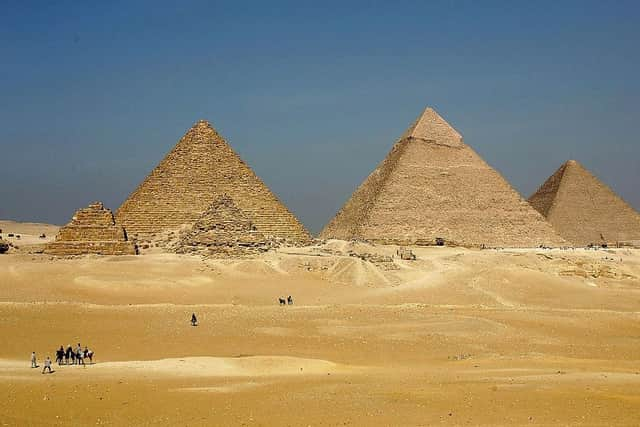9 laws all tourists need to know before going to Egypt
and live on Freeview channel 276
Holidaymakers are returning to Egypt following the Covid-19 pandemic, which saw the tourism industry grind to a halt.
If you are planning a trip to visit the River Nile or the Egyptian Pyramids, make sure you know the laws of the country before visiting.
Advertisement
Hide AdAdvertisement
Hide AdOtherwise, you could run the risk of potentially ending up in prison.


We have pulled together a guide of the laws you really need to know before visiting Egypt.
Here’s everything you need to know:
Keep a valid photo ID close by at all times
In Egypt, you should keep a valid photo ID with you at all times to prove your identity.
Zero tolerance for drugs
Egypt has a zero-tolerance for drug-related offences.
The UK government website states: 'Possession, use or trafficking in illegal drugs is a serious offence and can, even for small amounts, lead to lengthy prison sentences (25 years), life imprisonment or the death penalty.
Advertisement
Hide AdAdvertisement
Hide Ad‘Those sentenced to life imprisonment on drugs charges will normally spend the rest of their life in prison with no possibility of parole or pardon.'
Khat, which is a stimulant drug, is illegal in Egypt.
Alcohol laws
Egypt has different alcohol laws than European tourists might be used to.
According to the UK government website, drinking alcohol in the street and anywhere other than a licensed restaurant or bar is not allowed and can lead to arrest.
Publicising strongly negative opinions about the country
If you publicise a strong negative opinion about Egypt or make political comments, including about the President or security forces, you could land yourself in trouble with the authorities.
Advertisement
Hide AdAdvertisement
Hide AdIn some cases, derogatory comments on social media have led to custodial sentences.
Photography of military official installations is strictly prohibited.
Photography of, or near, military official installations is strictly prohibited in Egypt, including the Suez Canal.
Tourists must not photograph officials without their consent and there are sensitivities about taking pictures of public buildings or infrastructure.
British nationals have been arrested for photographing electricity stations, train stations, and bridges.
Advertisement
Hide AdAdvertisement
Hide AdIf you are in any doubt, seek permission before taking photographs.
It is also advised that you should not use radio-controlled helicopters or ‘drones’ to take photographs.
Ban on import, production or use of unmanned aircraft systems
The import, production, or use of unmanned aircraft systems (drones) is banned in Egypt unless you have prior authorisation from the Egyptian Ministry of Defence.
Citizens who use, manufacture, or import drones without the appropriate authorisation will be punished by prison terms ranging from one to 7 years and/or fines ranging from EGP 5,000 to EGP 50,000.
Debauchery has been used to prosecute LGBT people in Egypt
Advertisement
Hide AdAdvertisement
Hide AdAlthough same-sex sexual activity is not explicitly criminalised in Egypt, the charge of 'debauchery' has been used to prosecute LGBT people.
In 2017, at least 66 individuals were arrested on debauchery charges for flying a rainbow flag at a concert.
There is little public acceptance of homosexuality in Egypt.
Public expressions of homosexuality and/or public displays of affection between same-sex couples are likely to attract a high degree of unwelcome attention.
Dress modestly
Advertisement
Hide AdAdvertisement
Hide AdIn Egypt, individuals need to dress modestly in rural areas, mosques, and souqs (markets).
Although there is no compulsory dress code for women in Egypt, it is advised that individuals should keep their cleavage, knees, and shoulders covered.
Public displays of affection are frowned upon
Public displays of affection, such as kissing, are frowned upon in Egypt and what may be acceptable in the tourist resort areas may be frowned upon in others.
Holding hands is generally fine, but there are locations in Egypt where this is looked down upon, as physical contact between a man and woman is considered inappropriate.

